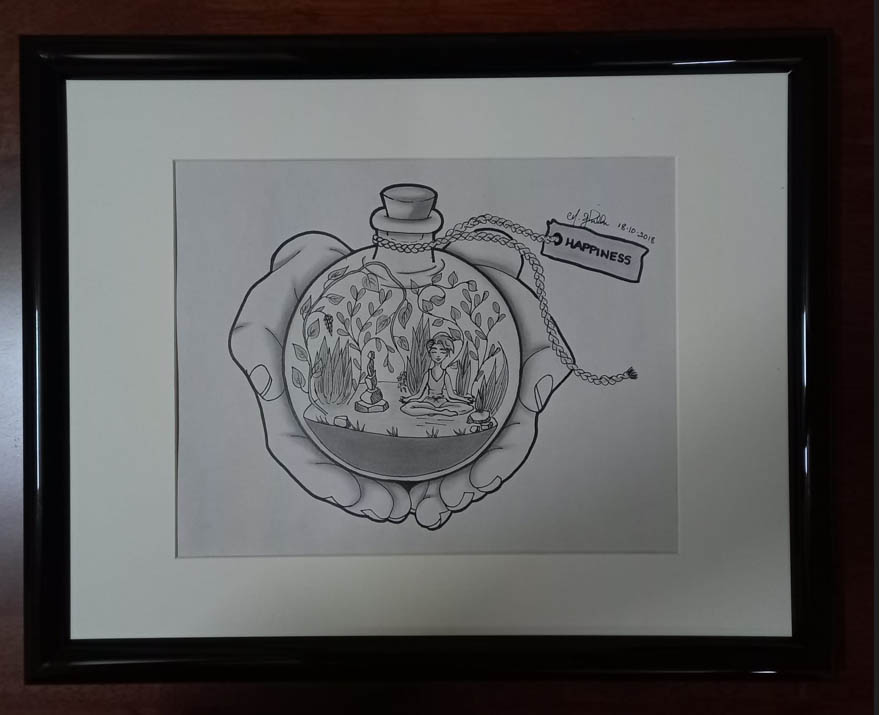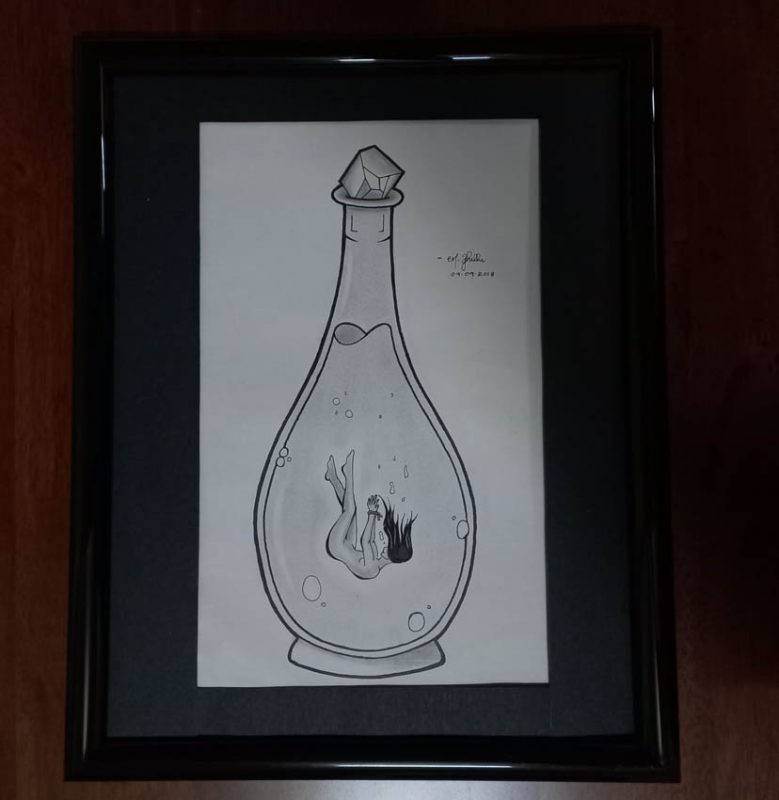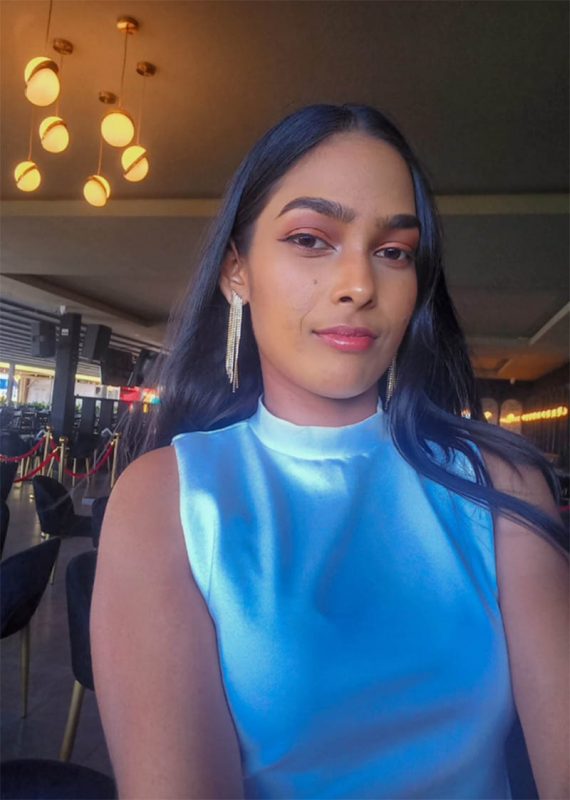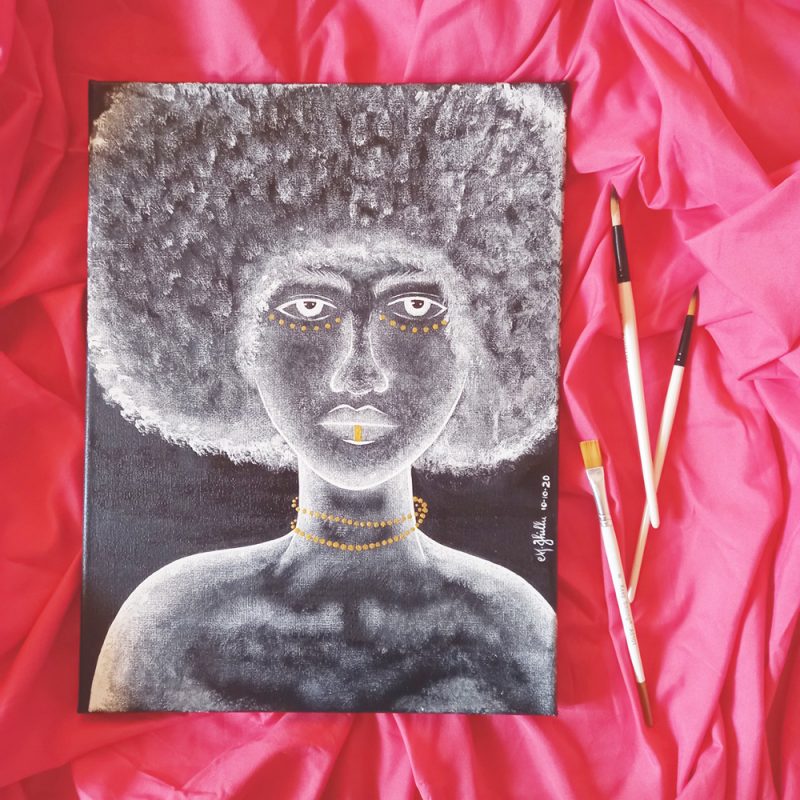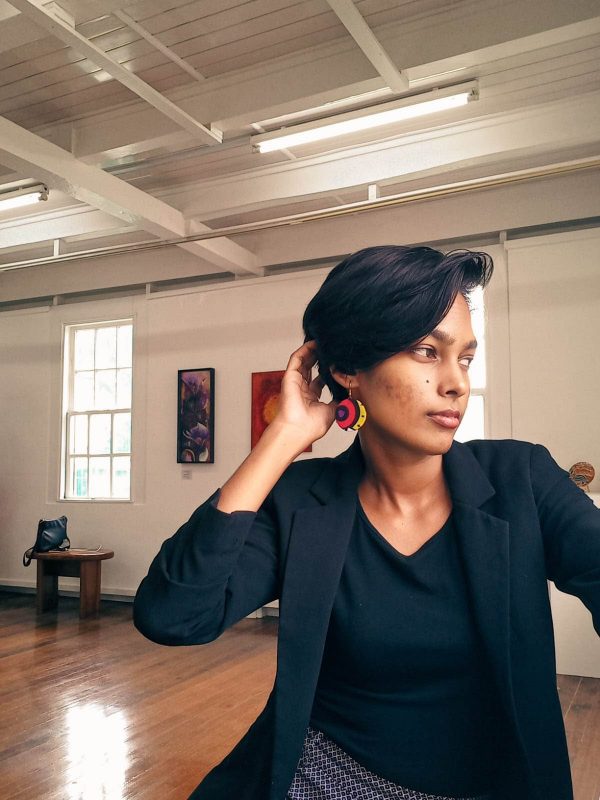By Rae Wiltshire
Maharanie Jhillu, 27, uses art to explore her identity. When Jhillu was born, most of her relatives had already died. “I feel they hardly have any records of them like photos or stories. Like where is that side of me?” she questioned. Thus, she began to explore her feelings about identity by researching various cultures. Looking back has allowed Jhillu to craft an identity that is unique to her. “My identity can be as dynamic as I want it to be. You get to map out the blueprint of your own life,” Jhillu said. “You also gain a strong sense of self when you go back down through the past and you get to ask yourself what do you want to take with you.” Jhillu has begun to feel ancestors from various cultures through her art.
She said she was fascinated by how women in India had worn their saris before English colonisation. Modern day saris are worn with a blouse, Jhillu said, because the British believed in modesty and any form of nudity was considered to be morally corrupt. Before this, some women had worn saris without the blouse. It was just the cloth wrapped around their skin and their bodies were not sexualised, she said. Jhillu recreated this look in a photoshoot, using her bedsheet. Preservation of culture is not only rooted in the things of the past; it is also about exploring the present. Jhillu’s ancestors are from India, but she has also taken inspiration from her black friends, who, she said, inspired her to diversify her art and challenged her to recreate the texture of their hair. To this end, she has painted a black woman with an afro and piercing eyes, which she said was one of the easiest paintings she has ever done.
“It was like your hands know what to do, but you don’t. You just know, but how do you know? It comes. I guess that’s what they call flow state,” she said. After she completed the painting, Jhillu said, she felt the woman’s eyes watching her as she navigated in the room. For months, the painting’s eyes would not relent. She called the painting ‘the Ancestor’s Gaze’. Each of these artistic endeavours has helped Jhillu to remedy her sadness about cultures being lost and not appreciated by people.
Jhillu has also begun to use art to regulate and work through other negative emotions. During an emotional period of her life, she drew a naked woman drowning in a wine bottle with bound hands. She called the drawing ‘Bottled’. Jhillu described feelings of frustration, sadness and anger. She felt overwhelmed and in the midst of doing the drawing she was able to separate each of her feelings and process them.
A contrasting drawing, titled ‘Happiness’ is also of a woman in a bottle, but the woman is not naked and she is not drowning. She drew this woman sitting on the ground in a lotus position, which is synonymous with meditation and decluttering of the mind. There are trees and other greenery sprouting around her.
Jhillu was able to draw this after she worked through her negative emotions. “Others don’t always understand the difficult situations you are experiencing in life and art created a space where I didn’t feel judged. I found a different form of coping and art became that,” she said.
The use of art to work through emotional pain has also helped her to be patient and create more sustainable relationships. “You have patience with yourself. It gives you a very good approach to the way you deal with people because in every given situation you’d have to have patience with both yourself and the [people] outside of you,” she added. Jhillu listens a lot more before becoming reactive. Patience has made her more self-aware when responding to conflict and helped her to respond with compassion when trying to find a solution.
Finding solutions to issues has guided Jhillu to become a creative entrepreneur who not only focuses on economic prosperity but an emotional release for her clients. She started her business, ArtfulExpressions592 in 2020. While she said the process was scary there are no regrets in sharing her art. Jhillu studied business at the University of Guyana and this background allows her to host sip and paint events, exhibitions with other local artists and an event that incorporated art and social awareness about mental health. There were singers, poets and a therapist who spoke with attendees and answered questions about mental health. Persons who painted were encouraged to be aware of their feelings while painting. It was an exercise that also helped Jhillu and this was her way of sharing a vulnerable part of herself with a community.
She hopes that her work can be purposeful and connect with others, while inspiring them to showcase their own talents. “I love when people come and can relate to the works that I have. You become both inspired and grateful that people can relate to it and it makes you want to do more, create more and see where it can become more purposeful,” she said. “It is a scary process for artists because they are putting themselves out there but once you put yourselves out there… just take the step and if you need it to be babysteps that’s okay. You imagine scenarios far worse than what it can possibly be.”
Perhaps, baby steps can help Guyanese to be more open about sharing their mental struggles. The country has one of the highest suicide rates in the world but it is still a taboo subject. Sometimes it can be an individual, who sparks a cultural shift that can change a society for the better. Individuals in history have caused both positive and negative changes. It is not far-fetched to imagine Jhillu’s event creating a major shift in Guyanese nonchalance and silence when it comes to mental health. Culture is dynamic and it can breathe life into a society.

